
It’s well known that Dutch mariners visited Australia long before Cook charted the east coast in 1770 for Great Britain.
However, the myth persists that early Dutch knowledge of Australia – which has been home to Aboriginal Australians for tens of thousands of years – was merely the result of clumsy navigation, with Dutch ships accidentally blundering onto the west coast while en route to Indonesia. That certainly wasn’t the case. Indeed, European exploration of Australia began with a deliberate voyage by Duyfken, a small Dutch ship captained by Willem Janszoon.
In 1606 Janszoon and his crew made the first authenticated European sightings of Australia when they reached the western coast of Cape York Peninsula, in far north Queensland. In the decades that followed, more than 40 Dutch ships sailed to Australia’s shores, with their navigators accurately charting much of Australia’s northern, western and southern coastlines, including parts of Tasmania. The legacy of these explorers remains with us today in place names such as the Swan River, the Gulf of Carpentaria, Dirk Hartog Island, and Cape Leeuwin.
Duyfken was a small, relatively fast armed ship known as a “jacht” – the term “jacht” comes from the Dutch verb “jagen”, meaning to hunt. (During the 17th century, the Dutch invented what we now call yachting-using vessels known as “spiel-jachten” (play-jachts), from which the term yacht is derived.) Duyfken was tasked by the Dutch East India Company, or Vereenigde Oostidische Compagnie (VOC), to explore what lay beyond the Spice Islands of eastern Indonesia.
Diese Geschichte stammt aus der September - October 2019-Ausgabe von Australian Geographic Magazine.
Starten Sie Ihre 7-tägige kostenlose Testversion von Magzter GOLD, um auf Tausende kuratierte Premium-Storys sowie über 8.000 Zeitschriften und Zeitungen zuzugreifen.
Bereits Abonnent ? Anmelden
Diese Geschichte stammt aus der September - October 2019-Ausgabe von Australian Geographic Magazine.
Starten Sie Ihre 7-tägige kostenlose Testversion von Magzter GOLD, um auf Tausende kuratierte Premium-Storys sowie über 8.000 Zeitschriften und Zeitungen zuzugreifen.
Bereits Abonnent? Anmelden
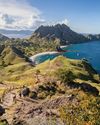
SULAWESI SENSATIONS
There are worlds within worlds and marvels untold waiting to be experienced on Indonesia's remote islands.
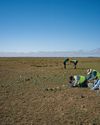
SEARCHING FOR AUSSIE DINOSAURS
Our understanding of where to find ancient life in Australia has been turned on its head by a new appreciation of the country's geology. Now the world is looking to our vast outback as the latest hotspot to locate fossils.
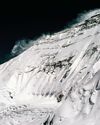
THE HARDEST NIGHT
The first Australian ascent of Mt Everest in 1984 is one of the great feats of mountaineering. Climbed by a small team semi-alpine style, with no bottled oxygen, via the Great (Norton) Couloir, it remains unrepeated 40 years later.
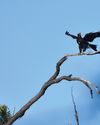
WEDGE-TAILED WONDER
The chance discovery of an eagle nest leads to an extended vigil observing normally hidden behaviours of one of nature's supreme winged marvels.
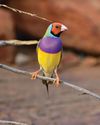
BURDENED BY BEAUTY
Northern Australia's Gouldian finch survives in huge numbers in cages around the world, but its wild population continues to struggle.
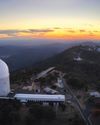
A TELESCOPE FOR A GOLDEN AGE
After a stellar 50 years as one of the country's major scientific assets, the AAT continues to play a major role in keeping Australian astronomy on the world stage.
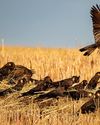
COCKY WHISPERING AT COOMALLO CREEK
This patch of remnant bush on the edge of the West Australian wheatbelt is a place loved by one of Australia's rarest bird species and the man who has studied the site for more than 50 years.

A PIONEERING PAIR
Louisa Atkinson and her mother, Charlotte, were among Australia's earliest authors, and pioneers in women's rights.
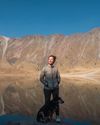
THE LONGEST WALK
Lucy Barnard is walking from Argentina to Alaska -the length of the Americas - on an extraordinary journey of endurance and adventure.
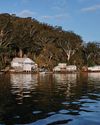
SECLUDED, BUT NOT ALONE
In an era of heightened social isolation, where many of us lead lonely lives, Dangar Island offers the chance to be part of a supportive, connected community.